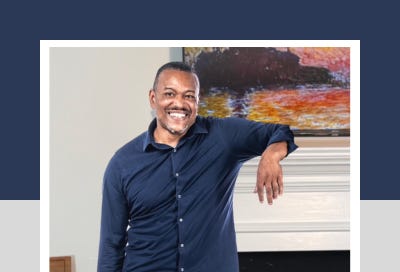018: Cultivating Virtuous Citizens- Leo Smith on Classical Education & School Choice
A better way to build virtuous citizens
Founder of Engaged Futures Group (a public affairs consultancy) and board member of Atlanta Classical Academy
Leo joined me for a live-recorded episode of 100 Atlanta Coffees, which you can find below (Spotify) or here for Apple Podcasts.
Bio:
Leo leads the Engaged Futures Group, a public affairs, government relations, and civic engagement consultancy where anchor clients have included the Republican National Convention, The King Center, and The Carter Center.
He grew up poor in Virginia and credits teachers taking a chance on him and an exposure to classical music for broadening his horizons. He ultimately graduated from Virginia Tech.
Leo has been involved in a myriad of Georgia political and civic engagement efforts, both professionally and as a faith-driven volunteer.
Our conversation focused on his board service with Atlanta Classical Academy, a K-12 public charter school that is part of Atlanta Public Schools. Leo was a founding board member and has served since the school’s inception in 2014.
An encapsulating anecdote - one of his teenage children was asked to describe what he does for work and said, “He teaches people how to love America!”
-
Three reflections on how Leo is pursuing a better way:
1. Classical education puts the soul back in public education
Atlanta Classical Academy is a secular public school, yet their philosophy is rooted in Judeo-Christian principles. The mission is to form knowledgeable, virtuous American citizens, and students pledge daily to “learn the true, do the good, and love the beautiful.”
From first grade through high school graduation, students memorize a poem weekly that they stand and recite to their classmates. This is the work of formation, both to be steeped in timeless texts and to develop the capability to stand and deliver.
I so appreciate the focus on forming students who are not only knowledgeable but also virtuous. We’ve looked at dozens of schools at this point, and the Waldorf School (trees, nature!) and ACA are two that jumped out as committed to nurturing both the mind and heart.
It seems to me they’re pulling an essential element of education back to the forefront, one that might have been lost in some of the (understandable) focus on preparing students for specific trades. The larger aim should be to become a person capable of discerning truth and applying it to their lives in order to live a beautiful, full life.
-
2. He holds a capacity for ideological nuance
Leo is a Black, conservative Republican, Christian who grew up counting on his school for meals and now sends his children to an elite Atlanta private school. He’s an accomplished classical musician who hasn’t shied away from nurturing his children’s love of athletics, and his daughter will attend University of Southern California on a full ride for track and field.
He doesn’t necessarily ascribe to one thought pattern and he refuses to be constrained by encompassing dominant ideologies.
For example, in the podcast he shared how the civil rights movement might not have been a universal good for Black people, given that some of the progressive champions eschewed the family-centric values systems that Leo views as bedrocks to the good life.
Leo has a great saying - “Be open minded, but don’t let your brain fall out!”
This feels important for our times. Can we actually examine an idea or proposal and understand the nuance of it rather than ascribing to it because it’s ‘what we’re supposed to do’? Can we build the capacity for discernment and informed choice?
-
3. He believes in school choice
A common critique of Atlanta Classical has been the catchment area as it’s located in an affluent neighborhood in northwest Atlanta - ‘any school could do well filled with rich kids from Buckhead.’
Leo refutes that claim, citing that the ACA students from less-affluent and minority households are also outperforming their peers.
He thinks ACA is onto something worth replicating and making available to more families in more neighborhoods.
Leo believes that providing parents with a variety of educational options empowers them to make the best decisions for their children’s unique talents and potential.
This opportunity enables kids to cultivate their individual gifts, transcending the limitations often imposed by the neighborhood they live in.
By nurturing each child’s potential, we foster the development of fully-formed individuals who are equipped to fulfill their God-given callings and contribute to a brighter, more vibrant community.
Ultimately, this cycle of personal growth and community enhancement lays the foundation for a more enlightened society where every individual has the chance to thrive.
The school choice debate is obviously a can of worms, and we didn’t debate what critics of school choice cite as degradation of educational equity, community cohesion, and public accountability. Still, I find myself drawn to ‘both, and’ logic - can we have great public schools, and also enough choice to enable parents to decide if a Montessori, Classical, outdoors-based, STEM, or more balanced educational model is right for their family?
-
Questions for reflection as we seek the better way:
How did you receive the education that imparted values to you and formed you into the type of citizen you are?
Is that area of life stronger, weaker, or the same today as it was when you were growing up?
If it’s weaker (or gone altogether), what are the healthy modern substitutes that could ensure kids are still learning the deeper, values-based truths of life?
Thanks again to Leo for joining me, and you can listen to the episode here:
PS, I would love to continue exploring this topic with someone who would take different ideological approaches than Leo. Who should I talk to? Send ‘em my way!






